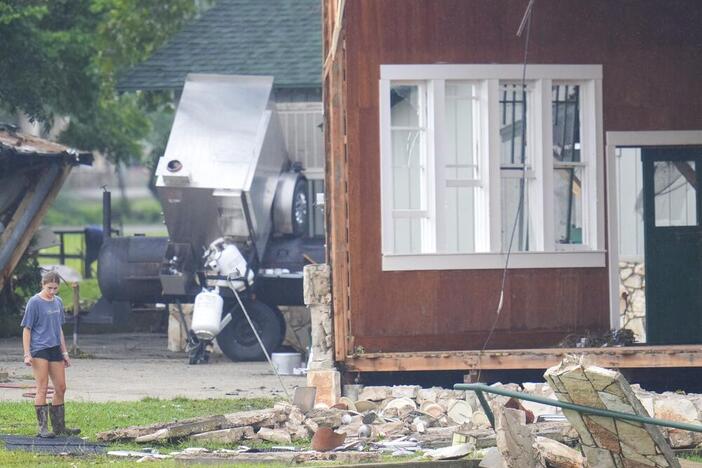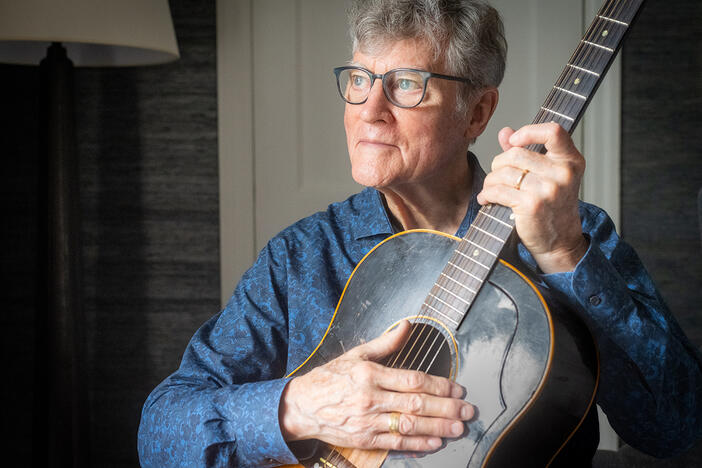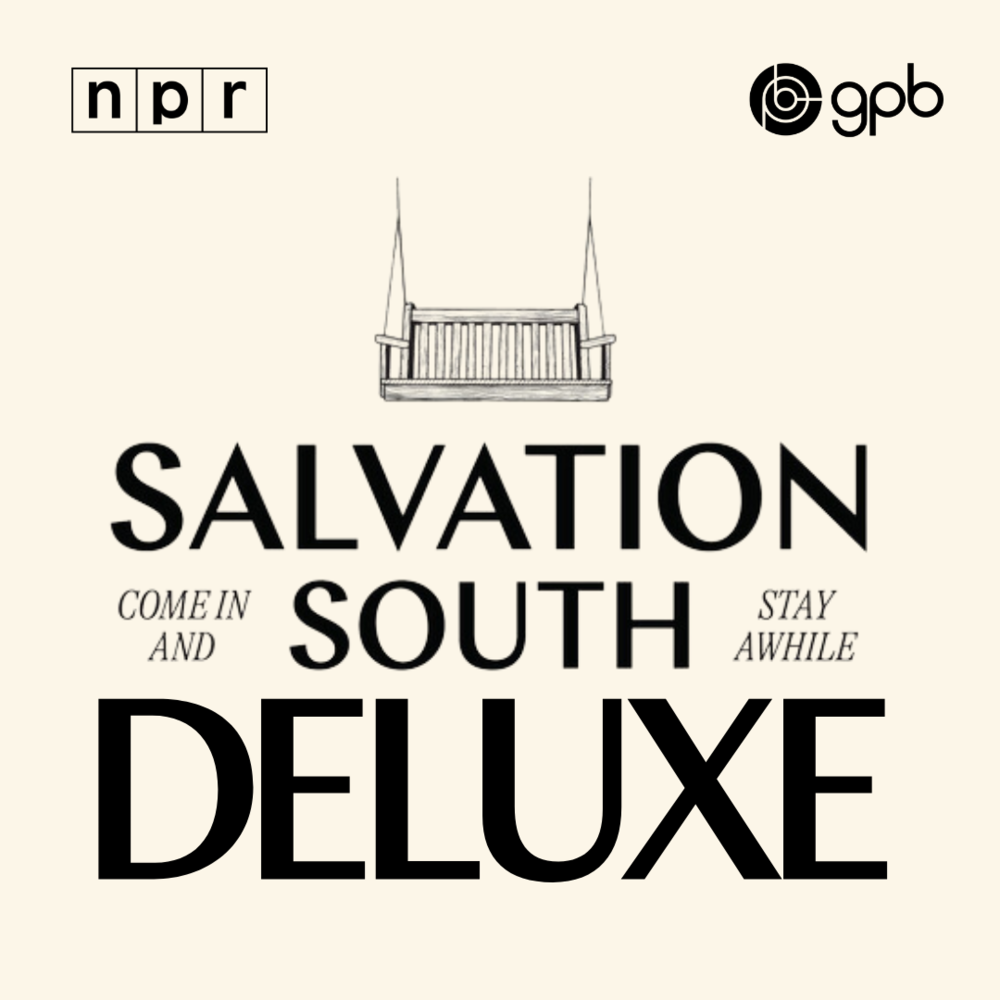
Section Branding
Header Content
Deluxe: Hard Truths and No Overnight Successes - Southern Literature in the 21st Century
Primary Content
A candid journey into 21st-century Southern literature——queer voices, hard truths, and the persistence behind every “overnight” success, live from Tallahassee’s Word of South Festival.

TRANSCRIPT:
Chuck Reece: I want to begin this episode of Salvation South Deluxe with a discussion of the canon.
Not the kind that can kill you. That cannon has two N’s in the middle. I’m talking about the canon with one N in the middle——the one Webster’s defines as “an accepted or sanctioned list of books.”
In the twentieth century, the canon of Southern literature included the likes of William Faulkner, Harper Lee, Eudora Welty, Zora Neale Hurston, and Flannery O’Connor. But which writers’ works make up the canon of Southern literature in this century? It is, of course, about seventy-five years too early to make a definitive list. But I can tell you a good place to start your research. It is an annual festival in Tallahassee called Word of South. For the past decade, writers and musicians have gathered in Florida’s capital city to read from their works or play music. And sometimes, writers and musicians get on the stage together to just…you know…see what happens.
At this year’s Word of South Festival, we tried to assess the current state of Southern literature. On this episode, we’re taking you to Tallahassee with us to talk to three Southern novelists—Florida’s Kristen Arnett, Louisiana’s M.O. Walsh, and Mississippi’s Michael Farris Smith. And two Southern poets, both from Alabama—Jacqueline Allen Trimble and Ashley M. Jones, who is the Poet Laureate of her home state. We’ll also hear from a Southerner by choice, novelist Jami Attenberg, who was born in Illinois but currently resides in New Orleans. Jami calls the Big Easy the “greatest city in the world,” and she’ll share some thoughts with us on how living in the South has uniquely shaped her writing——compared to other places she has called home.
Along the way, we will learn three things:
1. That while the greatest literature of the twenty-first century South willcover some of the same ground, it will be highly different from what we got in the previous hundred years.
2. That current Southern writing confronts realities that Southerners of the last century preferred to ignore. And finally,
3. There is no such thing in literature as an overnight success.
THEME MUSIC UP
Chuck Reece: I’m Chuck Reece, and welcome to Salvation South Deluxe, a monthly series of in-depth pieces that we add to the short commentaries of our regular podcast feed. Here on Salvation South Deluxe, we tell you some untold stories of the Southern experience and let you hear from the authentic voices that make this region unique.
THEME MUSIC OUT
SCENE ONE
Kristen Arnett: I like writing because I know I need to do it. If I'm not doing it, I feel terrible. When you're not doing that thing you're supposed to do, you feel bad. And I'm like, whenever I do it, I'm like, right, it's doing the thing I need to do.
Chuck Reece: That was the voice of a bestselling author from Florida, Kristen Arnett. I have a special spot in my heart for her writing, because her second novel, With Teeth, was the first thing that made me laugh out loud during the depressing months of the COVID pandemic. Kristen grew up in Orlando, and Jami Attenberg, an Illinois-born writer now living in New Orleans, is one of her best friends. I want to share with y’all some moments from the session they did together at the Word of South Festival.
Kristen Arnett: We're like really really good friends. Jami gave a speech at my wedding, like that's how good of friends we are.
Jami Attenberg: My speech was like how she DM'd about her wife Kayla and sent me pictures of her looking cute.
Kristen Arnett: Sorry I love my wife so much. Sheesh.
Jami Attenberg: It was like, look at this hot girl, basically. I was, like, great!
Kristen Arnett: I consider Jami to be a mentor to me. And any of my writing I've done has been very much influenced by conversations we've literally had over beers or just sitting out with our dogs and stuff.
Jami Attenberg: Being a writer can be like a very lonely existence and it's, really when you can find somebody who is just a huge fan of your work and same back and forth, that like, if you can someone who will be your cheerleader.
You can really build a wonderful friendship out of that.
Chuck Reece: The twenty-first-century canon of Southern writing will be unlike that of the last century because many Southern writers today build their stories around queer central characters. Few queer Southern writers sell more books than Kristen Arnett, but there are hundreds if not thousands of writers taking pieces of the Southern experience that were hidden in the twentieth century and bringing them to vivid life in the literature of this era.
Kristen Arnett: I'm from Orlando and I love writing about central Florida because I think it's a place that's very broad and holds a lot of different kinds of identities and people.
I know people have a lot associations with Orlando, they hear Orlando and they think immediately like Disney World or theme parks. Even if you don't work inside the theme parks, you're like touched by some part of the industry. Like living in Orlando, you at least know somebody who knows somebody that's like working and they're doing something. It's like, right? We're like a tourism hub. So it's like I don't know. One of those things where it's like everything kind of touches and everything feeds into each other.
It's a hospitality industry, which means there's a lot of entertainers and performers living in central Florida. And that means there is a lot of interesting, weird DIY creativity, which makes for, like, a really fun time and a lot of fun conversations.
Chuck Reece: Kristen’s debut, Mostly Dead Things, came out in 2019 and hit the New York Times bestseller list——a rare feat for a first novel. Her second, the aforementioned With Teeth, was published in 2021.
Distinctly different Floridian character played central roles in those first two books.
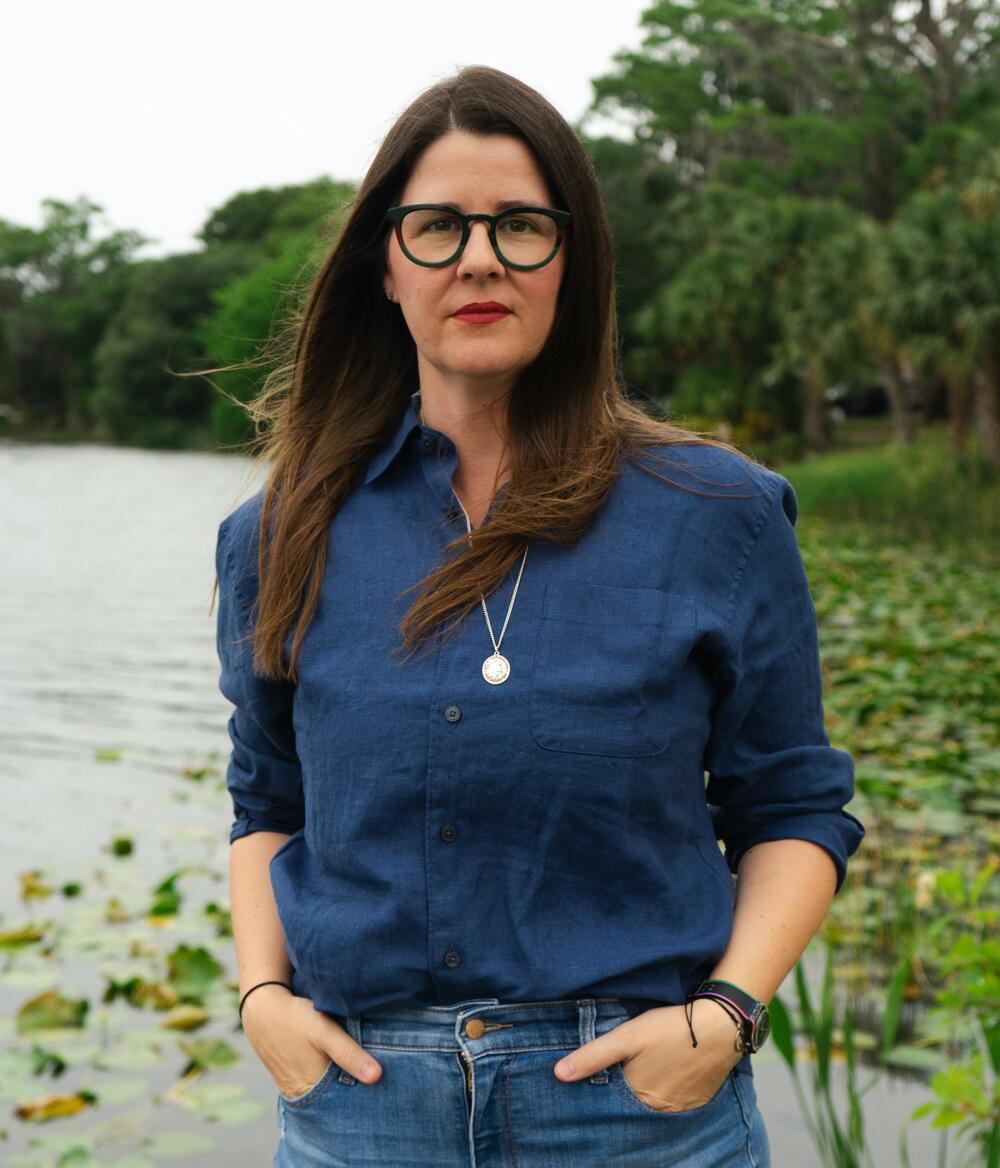
Kristen Arnett: Florida functions very differently in all of my books.
The first novel I wrote, Mostly Dead Things, which was... Classic Florida novel. That classic Florida novel, it's like a lesbian taxidermist who takes over her family's taxidermy business after her father commits suicide, ta-dum. You know, we all know that story. We've heard it dozens of times.
For my second novel, I was like, this is very suburban Florida, which is its own thing, mommy-specific suburban, upper-middle suburban Florida which is everybody's living in a suburb of something and they're just in their car all the time. So I was a mom in a minivan moving from one house from the school to karate lesson to the pool to the groceries, the Publix or whatever to the next and what that smear looks like through that and I was, that's a way to, this is still place without it being like me putting like my Kristen Arnett stamp on it.
Chuck Reece: Arnett’s latest novel, Stop Me If You’ve Heard This One, features another character who is unusual in that special Floridian way.
Kristen Arnett: It's about a lesbian birthday party clown in Orlando, Florida, who is like very obsessed with clowning and wants to take her art to like the next level and like kind of level up as an artist while simultaneously like thinking about humor and what it means to be an artist in a place that people consider to be like tacky when it comes to things.
The clown is very Orlando.
Chuck Reece: ’ve spent enough time in Orlando——and outside the theme parks——to get what she’s saying. This clown, Arnett says, is a lot like her hometown.
Kristen Arnett: People think it's a foolish thing. But the reality is it's performing and doing a lot of work. There's so much that goes into it that people maybe don't appreciate or see or they might think is tacky, but really takes so much time and effort to put together to make it into that kind of thing. It's funny in a kind of way where sometimes it's like you think the joke is for you, but then sometimes the joke on you a little. So I also think it is very playful. um, and absurd.
People have a lot of opinions about Florida … It can be kind of interesting because the more north you go in Florida, the more south it feels a little bit. You can hear the accents kind of change a little, but you see like the foliage change. I'm from central Florida and I know that there's ways in which parts of Orlando can feel like southern, like, or like ideas of like what the South could represent or might be.
I think Florida's interesting because it refuses to be nailed down a little So I think, yeah, sometimes it can be like this is like the South, but also, yeah sometimes it's its own thing. Maybe that's what makes it so interesting to write about, is that it won't let you kind of name it. It's like too squirrely. It's a squirmy place that refuses to like pigeonholed maybe.
Chuck Reece: Like Arnett herself.
Kristen Arnett: I grew up very Southern Baptist. … I also grew up going to Sunday lunch at my grandma's house with sweet tea, and sweet tea's only sweet tea if there's a bucketload of sugar inside of it. I mean, there's ways I think that there's overlap, but then there's way in which, too, it's like, I feel like, yeah, much like Florida, Kristen's kind of her own thing.
Chuck Reece: Kristen’s friend and writing peer Jami Attenberg was not raised in the South. She was born in Chicago. And she might not say this about herself, but I’ll say it because…you know…it’s what we say about our friends who move here and stay.
She wasn’t born in the South, but she got here as quick as she could.
Jami is the author of seven novels, a short story collection and the 2022 memoir I Came All This Way to Meet You: Writing Myself Home. In that book, Jami details the journey of self-discovery she undertook through becoming a writer. That journey eventually led her to New Orleans, another unique Southern city, which she’s now proud to call home.
Jami Attenberg: I feel like I have a little bit of a quieter, slower existence in New Orleans than I had. I moved down there from Brooklyn, but I've lived all over America, and I'm originally from Chicago, born and raised. And I just was able to create just a quieter life for myself. There is something about New Orleans that, you know, we are the Big Easy.
That’s what I was looking for. I was, I had lived in New York City for a long time and I just was trying to figure out where I wanted to land in my 50s. I moved down there when I was 45 years old.
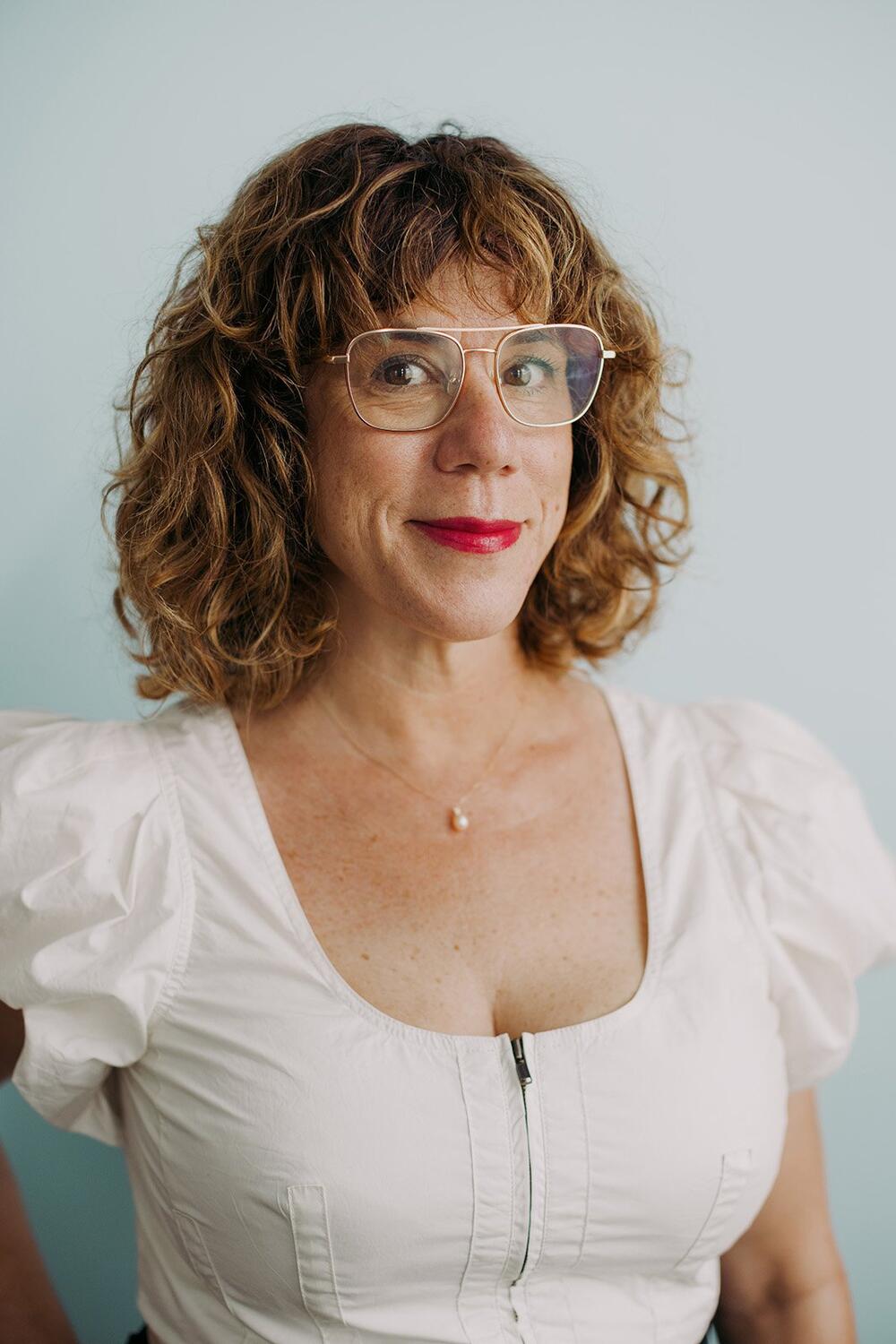
Jami Attenberg:I find that it's such a great starting place for me to write about places that I've lived. I've lived all over America. I grew up in the Midwest, but I've in Seattle, I've been to New York, I've spent time in Portland, Oregon.
And I live in New Orleans now, so that is always kind of like the centering, like place is really the centering thing for me.
There's always a character who kind of shows me their way in, but like once I figure out where they live, it feels like the whole book really opens up for me because I can, you know, I can just use that landscape. Like using a landscape is like, it's just a shortcut to a million kinds of things.
Chuck Reece: For Jami Attenberg——a Southerner by choice——this region is a shortcut to other places, other landscapes.
But the South is also a shortcut to some of the deepest flaws in the American experience. When those twentieth-century Southerners began exploring the South’s tortured relationship with race, some, like Faulkner, were direct in their approach. Others, like Welty, were more oblique and subtle.
I sensed a hesitancy in 20th-century Southern literature's treatment of race and racism, as if it constantly wondered, "Can we discuss this now?”
In this era of Southern literature, directness is the watchword. And for me, I believe some of the most important Southern literature that directly deals with race and racism is coming from our region’s poets.
Chuck Reece: At the Word of South, for the last few years, there has been a Salvation South Stage. Our magazine works with the festival staff to program two days of readings and music that speak directly to Southern culture and history. This year, we invited two Alabama poets, Jacqueline Allen Trimble and Ashley M. Jones, to have a quote-unquote “conversation in poems” on the Salvation South Stage.
It was an eye-opening experience for the audience, who gave Trimble and Jones a standing ovation when they finished.
Here is a little taste of that experience, with Jackie Trimble setting up and then reading a poem called “This Is Why People Burning Down Fast Food Joints and Whatnot.”

Jacqueline Trimble: There was a time in my life, not too long ago, where I would get into fights with people on social media, and then I said, why am I wasting my time? And so a woman who I went to college with asked a question. This was after George Floyd had died and people were doing protests, and she asked, “Why are people burning down the Wendy’s?” That was her question. And normally I would have answered her with a history lesson, but I said I'm gonna write a poem instead.
So this poem is called “This Is Why People Burning Down Fast Food Joints and Whatnot.”
And it has an epigram to it. In the epigram…so I also teach American literature and part of teaching American literature is being very well acquainted with American history. And so I always am looking for the cross-sections between history and the present moment.
Chuck Reece: Trimble found that epigram——the two questions and answers you will hear at the beginning of the poem——in a historical document called “A Catechism, to Be Taught Orally to Those Who Cannot Read; Designed Especially for the Instruction of the Slaves in the Protestant Episcopal Church in the Confederate States.”
Jacqueline Trimble:
This Is Why People Burning Down Fast Food Joints and Whatnot.
Q. How do others sin against you?
A. By cursing me—telling lies about me—or striking me.
Q. What must you do to those who thus sin against you?
A. I must forgive them. *
See, I learned my catechism well.
Learned to offer my cloak and coat, my cheek
again and again as the skin was splayed
from my body. I can quote
Martin Luther King Jr. with ease,
praise the Americana of his martyrdom,
the sweet, unselfish beauty of that bullet’s velocity.
Shall I sing “We Shall Overcome” while
I swing? I have wanted so long
to believe in justice, to think of each blow
as recompense for my wickedness.
How can I continue?
How can I continue?
How can I continue
to take and eat this image
of myself, choke on the eloquence
of my dissent, speak love fluently
to someone with his knee
on my neck, his bullet in my child?
Chuck Reece: The other person in this conversation in poems was Ashley M. Jones, Alabama's Poet Laureate. Since that position was created ninety-five years ago, Jones is the only African American and the youngest person ever to hold that position.
This is Jones’s response to Trimble’s poem.
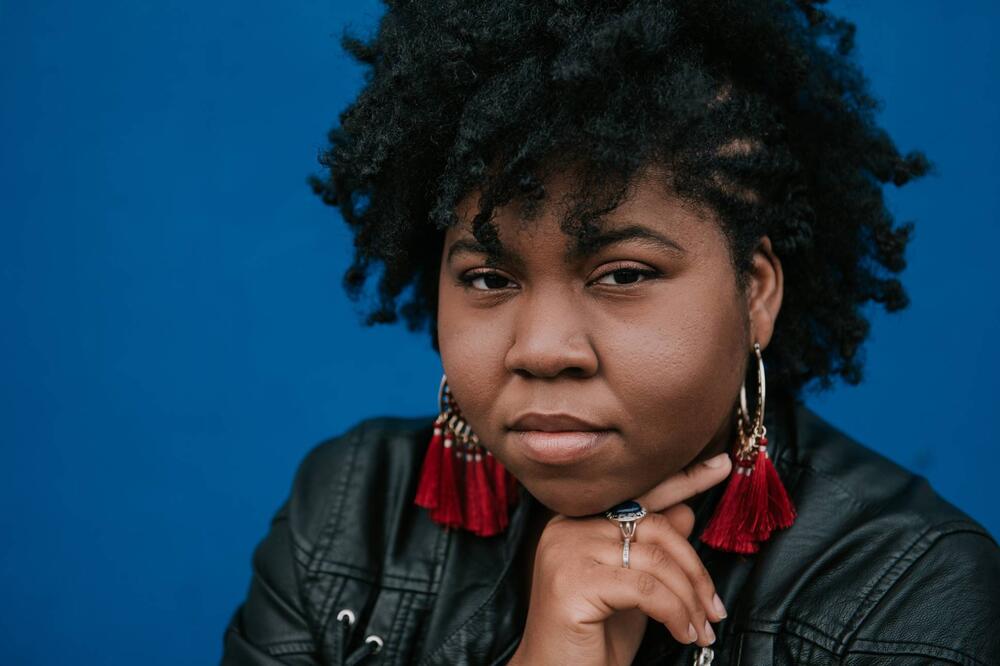
Ashley M. Jones: I do love that poem, Jackie, I love it so much. … More than anything, it's telling people like it is, which I think is necessary for us to do on a daily. And so I think I'm gonna read my poem, which I thinks pairs well with yours. It features Dr. King as well——often misquoted, often misinterpreted Dr. King. This poem is one that I wrote also as a response.
So I've toured across the country and you can probably tell already I don't have a really deep Southern accent so people don't always know where I'm from. And so when I say I'm From Alabama, people have literally asked me, “Are you okay?” And I've always said to them, “Well, I live in the same country you live in.” I understand you think the South is somehow worse than wherever you live, but this is all America. All of us have to contend with the same issues across our country, and that has always been true. Even if you think back to the times of slavery, yes, the cotton was grown in the South, but everybody wore clothes. Everybody benefited from it.
So this poem talks about that, and it begins with an epigraph from Dr. King… So this poem is called All Y'all Really From Alabama. Because that's also true. Everybody has a secret cousin from Alabama. So the epigraph reads…
…The straitjackets of race prejudice and discrimination do not wear only southern labels. The subtle, psychological technique of the North has approached in its ugliness and victimization of the Negro the outright terror and open brutality of the South.
All Y'all Really From Alabama
this here the cradle of this here nation——everywhere you look, roots run right back south. every vein filled with red dirt, blood, cotton. we the dirty word you spit out your mouth. mason dixon is an imagined line—you can theorize it, or wish it real, but it’s the same old ghost—see-through, benign. all y’all from alabama; we the wheel turning cotton to make the nation move. we the scapegoat in a land built from death. no longitude or latitude disproves the truth of founding fathers’ sacred oath:
we hold these truths like dark snuff in our jaw, Black oppression’s not happenstance; it’s law.
Chuck Reece: I find it encouraging to hear Ashley Jones and Jackie Trimble deliver truth so plainly. When the canon of Southern literature was first being built a century ago, their voices would have been silenced.
Salvation South Deluxe will be right back, after this short break.
MIDROLL BREAK
SCENE TWO
Chuck Reece: I once asked the Mississippi novelist Michael Farris Smith a tough question. I said, “Say you meet somebody at a party. They ask you what you do for a living. And you tell them you write books. That person’s next question, logically, would be ‘What kind of books do you write?’”
What’s your answer to that?
Michael Farris Smith: I have a very difficult time answering that question. It's like when somebody says, What's your novel about? You look at any one of my novels, they fall into about seven different genres.
I do take a sense of pride in the fact that I can't be pigeonholed into one category or genre.
Chuck Reece: Two of Smith’s novels——The Fighter and Desperation Road——became feature films in 2024. Smith adapted the scripts for both films from his own novels—a rare accomplishment for American novelists. Desperation Road starred Mel Gibson, and The Fighter took a new name, Rumble Through the Dark, and featured Aaron Eckhart.
When Hollywood called, it did force some questions about categories.
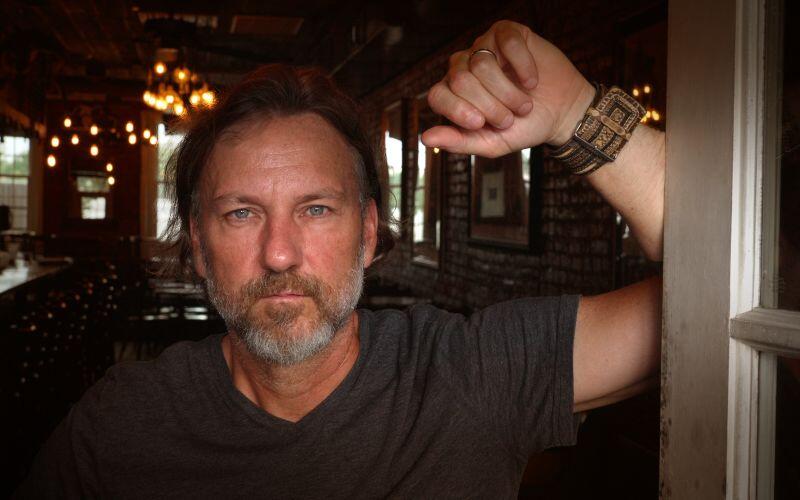
Michael Farris Smith: When we started adapting, when we started doing these movies Desperation Road and Rumble, “thriller” came up for them in the pitch. I do like things with the thriller element. And I think all of my novels have that. I mean like something that feels very propulsive and like leading toward something that you may or may not be expecting.
Chuck Reece: I first met Smith when I was asked to interview him in front of an audience when Desperation Road was published in 2017. So I’ve known him long enough to know it didn’t bother him when Hollywood asked for some labels. He was glad they were asking for anything. He had put in more than two decades of writing every single day before that happened.
Back in 2011, Smith had published his first book, a short novel—a novella—called The Hands of Strangers. And that only happened after ten years of devoting every day to writing. That first 10 years?
Michael Farris Smith: It was a long stretch of rejection and "no thank you"s. I hate to use the word failure, but I guess that's what it was. I mean I was going on, you know, six, eight years of just nothing really happening.
In the meantime, I wasn't teaching full time. I'd become the father of little girls. Time was shrinking rapidly. You know how it is. The day just shrinks up and disappears.
Chuck Reece: But when he finished his first draft of The Hands of Strangers, he thought it had a real shot at being published.
Michael Farris Smith: I knew The Hands Of Strangers was something different and I knew it was better. So I sent it out and all of a sudden it was still no thank you, no thank, no, thank you. But the rejections came and they were saying now like we really dig this, but there's no way I can get my publisher to publish a novella from a debut author. You have to be more established.
So I was sitting there going, okay, so now it's not about the work, it's about promotion and marketing and all this, why I'm getting rejected, which was a very different kind of rejection. It was hurtful.
Chuck Reece: It was like hearing a college professor tell you the paper you wrote was worthy of an A, but it just wasn’t long enough.
Michael Farris Smith: And I was up in the middle of the night one night, couldn't sleep, second baby was on the way. And I just pulled up on Google, like “novella submissions.”
Chuck Reece: Sure enough, he found a small publishing house in North Carolina that was actively soliciting novella submissions.
Michael Farris Smith: And I shot him an email in the middle of the night.
I was telling my wife, if nothing happens in the next six months by the time this school year is over, I can't do this anymore. Like, I'm tired. I can’t do it. I can’t keep it up. She goes, if that's what you want to do, that's fine. And just a couple weeks later, I get this email back. that says we'd love to publish your novella if it's still available. And the funniest part of that email was “if it was still available.” I was like, “I don't know! Let me check! Oh yeah, what do you know? It's still available!” So I sold it to them, gave it to them. I think the first royalty check I got for that book was $23, which, I mean, I had beer money, you know, I was happy about it.
Chuck Reece: But soon after, he got a phone call from the editor of that tiny publishing house.
Michael Farris Smith: And he goes, have you seen Publishers Weekly? And I said, uh, why would I be, why I would see Publishers Weekly? I have no reason to look at them. He goes, Hands of Strangers just got a starred review. He goes I've been sending them books for 15 years, it's the first book I've ever gotten a star review.
I was like, all right, that's awesome.
And I hung up the phone and I like googled like one star. That's it. That sounds like shit to me. I didn't realize that a starred review from Publishers Weekly is like a big deal.
Chuck Reece: Later, when he finished Rivers, his first full-length novel, the results were different.
Michael Farris Smith: When I sent Rivers out after this Hands of Strangers thing, I think I sent it to five agents.
Every one of them said they wanted to read it. I picked one. Rivers was submitted to New York publishers on a Monday and it was sold on a Friday——in five days.
I'd spent 10 years waiting, waiting, rejection, rejection. Depression. I quit. This sucks. I can't do it anymore. I'm going to try again. More rejection. This sucks, I quit, no you're not. Try it again. Get up. Keep going. 10 years of that and all of a sudden it happened like that.
I was an overnight success after 10 years.
SCENE THREE
Chuck Reece: Smith found his success by writing thrillers—or whatever you, dear reader, wish to call them—about the darker parts of Southern life. M.O. Walsh, who grew up in Baton Rouge, Louisiana, and now lives in New Orleans, has gone another route.
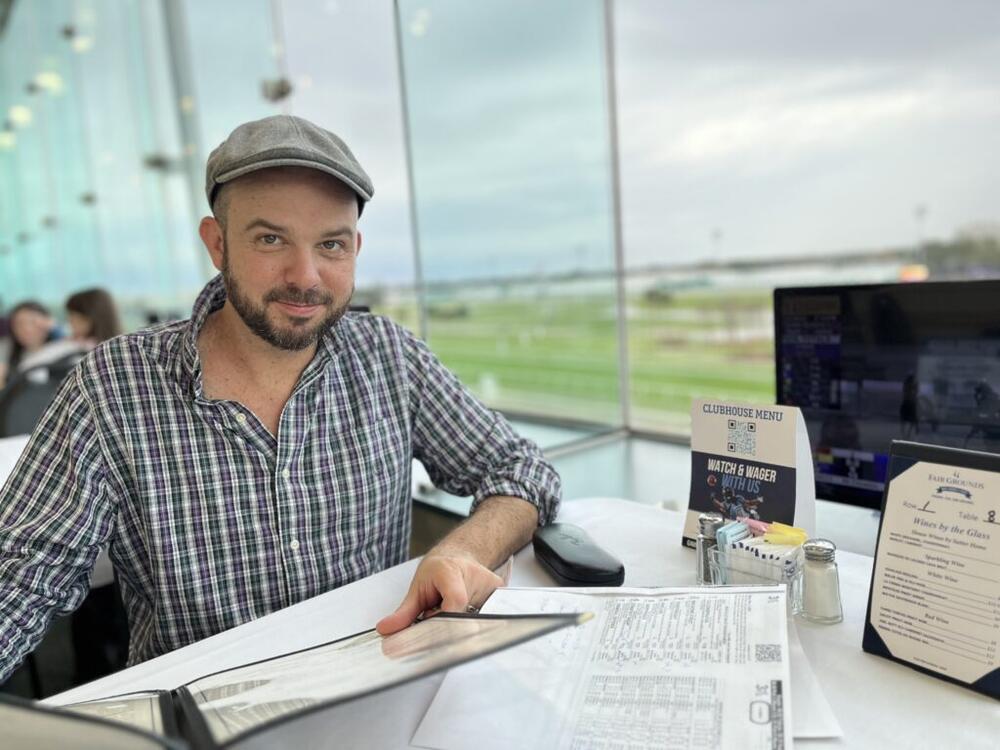
M.O. Walsh: I'm usually considered like the optimist of the group. I don't know why. It's not like I set out necessarily to always be that way, but I have friends that have known me for many years, and oftentimes, after I'm saying something about life and what I think, they're like, what's wrong with you? You know, they're, like, what is wrong with, you're like look around, man, it's all burning down, it's terrible.
Life can be pretty good. You know? Like, feeling good, being in love, that's good stuff, right? And it's worth writing about. Literature doesn't always have to be about the darkest aspects of humanity. You can tell a joke every once in a while, and it's okay.
Chuck Reece: In Walsh’s most recent book, The Big Door Prize, a mysterious machine appears in the grocery store in a fictional small town called Deerfield, Louisiana. The machine looks like a photo booth. But it analyzes DNA to determine a user's potential future. This causes widespread upheaval for the town's residents.
M.O. Walsh: People walk into the machine thinking one thing. It spits them out this little ticket, telling them what they could be great at.
If you think about just geography, where you're from, right, I never picked up a hockey stick in my life. I'm from Louisiana, but I could be good at that, who knows, right? You can think of a million examples, right, I mean, someone who's from, you know, the upper crust of Manhattan has probably never tried yodeling, you know, there's a million reasons why you might not have tried something that you could be good at.
Chuck Reece: "The Big Door Prize" contemplates fate, the limits of human potential, and a world where science holds the power to reveal a person’s future.
M.O. Walsh: If you look 23andMe and all these ancestry things, people are like, oh, I just send in my DNA and they'll tell me everything. People, we put a lot of credibility into it. And so that's sort of where the idea came from. I'm like, I'm just gonna have something that uses DNA to tell people something that's impossible, which is potential. Like how in the world could you define that? But wouldn't it feel good, right, if someone could tell you. And so that's where that idea came from.
Chuck Reece: A story like that could happen anywhere. A New York City bodega could easily have a machine like that. A convenience store in another town called Deerfield somewhere outside the South. The challenge for Walsh was to control the potential consequences of a machine predicting the future.
M.O. Walsh: You've got to find ways to limit it, right? And so that's when I recognized, definitely small town. It's got to be a place that gossip is more powerful than technology, you know?
Chuck Reece: Sounds like every Southern small town I know.
M.O. Walsh: It's got it's gotta feel that way that people are talking about their neighbors and what happened to them and what readout they got.
Chuck Reece: So, he created the fictional small town of Deerfield, Louisiana. Much like the towns he knew growing up in that state.
To further define the narrative parameters of this story, M.O. Walsh took inspiration from one of the South's greatest storytellers ever, the songwriter John Prine.
MUSIC: John Prine - "Grandpa Was A Carpenter"
M.O. Walsh: I love the way he writes. He is also hopeful, but can be very earnest and sad. He can break your heart and make you laugh in the same song, which is incredible dexterity and flexibility as a writer that I really admire.
My relationship with John Prine’s music came late in life. I was in graduate school in Tennessee. and I started dating this girl.
At this time, I was learning how to play the guitar. She'd sit down very politely. And I would pick it up and try, and I was trying these songs that were way too hard. I don't know if y'all ever tried to play guitar. It's pretty hard, you know?
She looks at me and she's like, don't you know any John Prine songs? Like just something simple? I had never heard of him in my life, right? I'd never heard John Prine and I'm was like, no. And as soon as she left, I was like John, who's John Prine, like, Googling it.
I went and started listening to him and I quickly fell in love with his music and mainly his writing. I just think he's one of my favorite writers. And so that girl is now my wife, right? So we've been married. Yeah, we've married for over twenty years now And we still go out on the back porch and play John Prine songs together.
Chuck Reece: When developing his characters, Walsh had a lightbulb moment when he wrote a scene in which a character named Principal Pat gets a read-out from the machine that says "Carpenter"
She responds, “My grandpa was a carpenter.”
“Grandpa Was A Carpenter” happens to be the name of a song from John Prine’s 1973 album Sweet Revenge. We played you a bit of it a minute ago.
M.O. Walsh: I sort of chuckled when I wrote it, I was like, hee hee, hee. You know, that's a little inside joke for me. I'll cut it later. But once I did that, I'm like, you know what? I'm gonna put a couple more inside jokes in.
Chuck Reece: I am a big John Prine fan, too. So, when I read The Big Door Prize, about halfway in, I figured out Walsh’s inside joke. He named the first four chapters after each of the four main characters. But after that, every single chapter’s title is a snippet from the lyrics of a John Prine song.
M.O. Walsh: I just leaned into it. And I was like, okay, let's go. And chapter titles, you know, like there's like, almost all the chapter titles are from John Prine lyrics. There's all sorts of little hidden John Prine references in the book. I think there's over 40 of them. So if you're a big fan of his, you can find all these things.
Chuck Reece: Perhaps Walsh's engaging inside jokes helped him break into Hollywood, mirroring Michael Ferris Smith's path.
M.O. Walsh: My book was coming out in 2020. … COVID had shut down all the theaters around the world, Broadway theater, all this type of stuff. And also at the same time was right when the show called Schitt's Creek had ended.
Chuck Reece: Schitt’s Creek was a Canadian sitcom starring Eugene Levy and Catherine O’Hara. The show's hilarious final season (2020) won every major comedy Primetime Emmy.
One of those Emmy winners was an executive producer and writer named David West Reed.
M.O. Walsh: Schitt's Creek was over. And we had this very prolific writer who was sitting there like, “I have nothing to do. What can I do?” And very fortunately for me, my agent got a copy, my film agent got a copy of The Big Door Prize to him. And he read it and loved it and was like, oh my gosh, this will be like my new project. And so we started talking and things sort of happened really fast.
Chuck Reece: On March 23, 2023, the first episode of a series called The Big Door Prize debuted on Apple TV. The show spanned two seasons, totaling twenty episodes.
M.O. Walsh: It was a totally surreal experience, seeing things cast back to you on your couch that you thought of in your pajamas three years before. Like suddenly, you're hearing your own lines come back at you from a different writer. It was really amazing.
Chuck Reece: Unlike Smith, who wrote the movie versions of his books, Walsh wasn’t involved in writing the television series. But he did visit the set. When he did, he got a reward that wasn’t monetary.
M.O. Walsh: I walk in there and the first thing I hear is just like the sound of hammers and then I notice that there's like, there was 300 something people working on the show. There was carpenters, electricians, you know, like I just hear, I see people building things and sanding things and there's costume people.
And I was like, all these are like, this is how they're feeding their families. This is like, it was totally overwhelming. And so I lost it. I really lost it and ever since, just a feeling of gratitude, you now, like just overwhelming.
Chuck Reece: And lest I have made Walsh sound like an overnight success, here are some facts. Walsh was in his mid-forties when The Big Door Prize became a TV series. He started writing seriously when he was in college at the University of Tennessee, about twenty-five years earlier.
do not know what the greatest Southern books of the twenty-first century will wind up being. Every person whose voice you’ve heard on this show will be gone from this Earth by then.
But one thing that won’t change is that the South——because it is simultaneously beautiful and ugly——will always be fertile ground for storytellers.
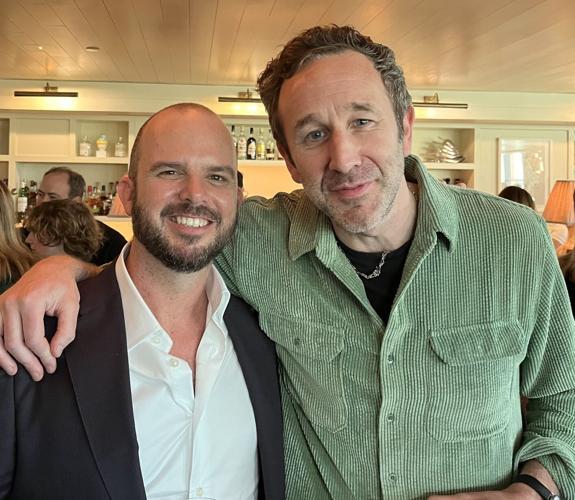
CONCLUSION
Chuck Reece: We have many people to thank for making this episode possible. Mark Mustian and Sara Marchessault and Mark Striffler and many other staff members at Tallahassee’s Word of South Festival. Salvation South will be there every April as long as they’ll have us.
To every writer who graciously gave us their time.
To Kristen Arnett for being the first person to make me laugh after many depressing months during the pandemic. Her latest novel is called Stop Me If You’ve Heard This One.
To Jami Attenberg for a delightful conversation and proving once again that folks from anywhere can find Southern hospitality to be so appealing that they never want to leave. Her latest novel is A Reason to See You Again.
To Jacqueline Allen Trimble and Ashley M. Jones for their beautiful verses and their fierce dedication to the truth. Jackie’s latest collection of poetry is called How to Survive the Apocalypse. She has another, called Joy in a Time of Elegy, coming soon. Ashley’s new collection, Lullaby for the Grieving, will be out only a few weeks after we release this episode, and Salvation South will publish an exclusive excerpt from it, plus an interview with Ashley, on the Sunday before the book hits the stores.
To Michael Farris Smith's steadfast contributions to Salvation South and his courageous exploration of Southern culture's shadows, while revealing its hidden lights.
And finally, to M.O. Walsh. The M.O. stands for Milton O’Neal, and folks who know him just call him Neal. I wanna thank Neal for loving John Prine’s music as much as I do and for writing two books that have brought me joy. Although I gotta say that last summer, Salvation South published one of darkest fictional short stories we’ve ever published, called “Meet Me There” and the name at the top of it was M.O. Walsh.
The first line of the story was
The sick coward Simon lived on a weak little neck of the Tickfaw River and we were to bring him the trouble. Make him confess, watch him shiver.
I suggest you look that one up and read it.
You’ve been listening to Salvation South Deluxe, proudly produced in cooperation with Georgia Public Broadcasting and its network of twenty stations around our state. Every Wednesday, we add a new three-minute commentary about Southern stuff to our podcast feed, and every month, we add longer, dee-luxe stories, such as the one we’ve just told you.
I’m Chuck Reece, your host and the editor-in-chief of Salvation South, which you can find twenty-four-seven at SalvationSouth.com.
Our producer is the Jake Cook, who also composed our theme music. GPB’s director of podcasts is Jeremy Powell, and none of this could have happened without wonderful people like GPB’s Sandy Malcolm, Adam Woodlief, and Bert Wesley Huffman.
We’ll be back next month with another full-length episode of the Salvation South Podcast.
Salvation South editor Chuck Reece comments on Southern culture and values in a weekly segment that airs Wednesdays during Morning Edition and All Things Considered on GPB Radio. Salvation South Deluxe is a series of longer Salvation South episodes which tell deeper stories of the Southern experience through the unique voices that live it. You can also find them here at GPB.org/Salvation-South and wherever you get your podcasts.
A candid journey into 21st-century Southern literature——queer voices, hard truths, and the persistence behind every “overnight” success, live from Tallahassee’s Word of South Festival.





